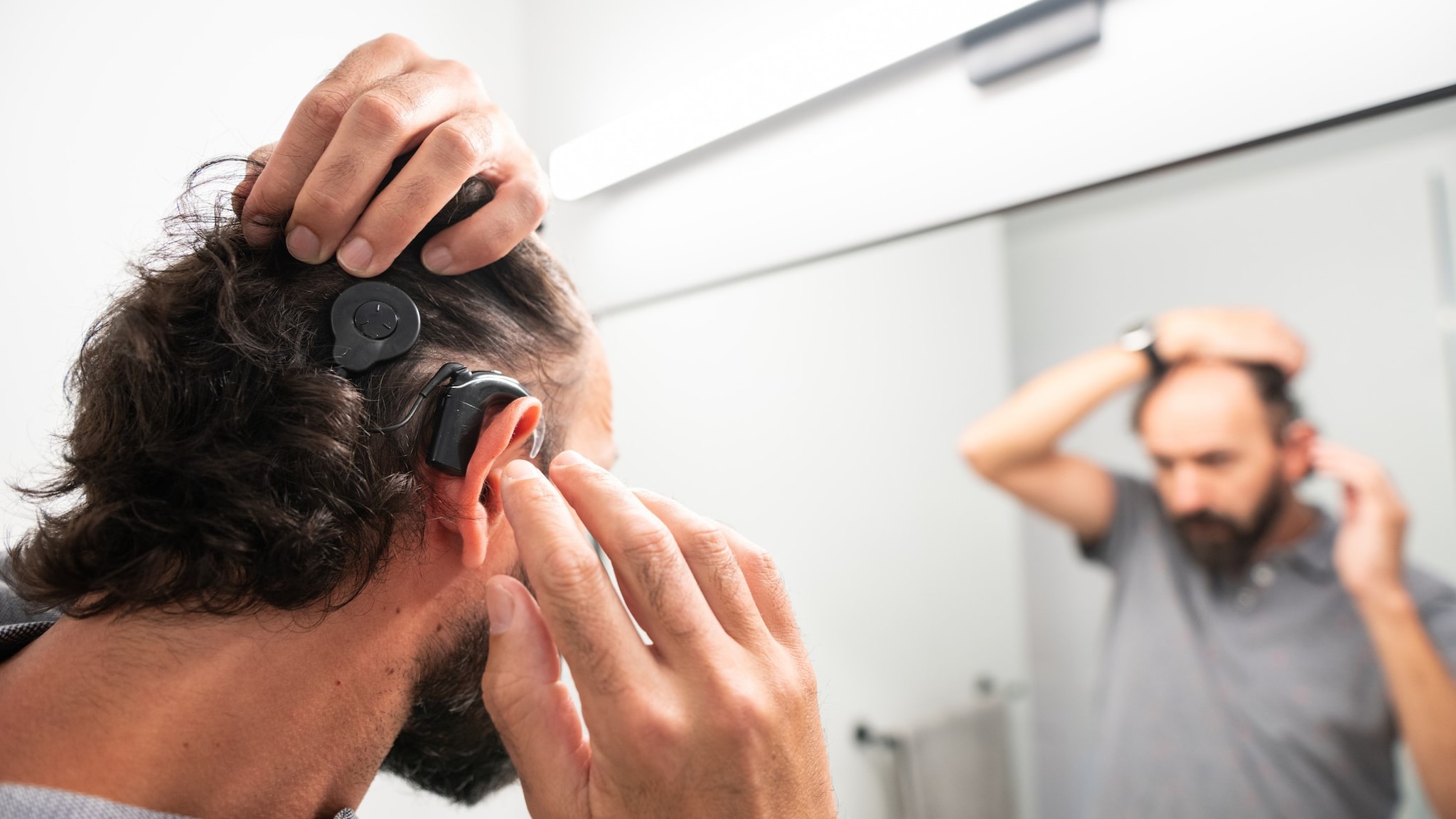Key points
- People with cochlear implants are more likely to get bacterial meningitis than people without cochlear implants.
- The bacteria Streptococcus pneumoniae (pneumococcus) causes most cases of bacterial meningitis in people with cochlear implants.
- Due to their increased risk, CDC recommends pneumococcal vaccination for people who have or are candidates for cochlear implants.
- Follow the recommended immunization schedule to ensure that your patients get the pneumococcal vaccines that they need.

Risk
People with cochlear implants are more likely to get bacterial meningitis than people without cochlear implants.
In addition, some people who are candidates for cochlear implants have anatomic factors that may increase their risk for meningitis. These factors include facial and cranial abnormalities, including of the temporal bone and cochlea.
Pneumococcal vaccine recommendations
Recommendations for the timing and type of pneumococcal vaccination vary with age and vaccination history.
Children
Children who have or are candidates for cochlear implants may need pneumococcal vaccination. It depends on their age and which pneumococcal vaccines they've already received.
Adults
Pneumococcal vaccination is recommended for adults who have or are candidates for cochlear implants.
Other vaccines help protect against meningitis
There's no evidence people with cochlear implants are more likely than people without cochlear implants to get meningitis due to
However, Hib and meningococcal vaccines are routinely recommended based on age and other risk factors.
Resources
Treatment and prevention
Treatment and intervention for hearing loss
Meningococcal vaccine recommendations
Patient resource
- Kahue CN, Sweeney AD, Carlson ML, Haynes DS. Vaccination recommendations and risk of meningitis following cochlear implantation. Curr Opin Otolaryngol Head Neck Surg. 2014;22(5):359–66.
- Lalwani AK and Cohen NL. Does meningitis after cochlear implantation remain a concern in 2011?Otol Neurotol. 2012;33(1):93–5.
- Lalwani AK and Cohen NL. Longitudinal risk of meningitis after cochlear implantation associated with the use of the positioner. Otol Neurotol. 2011;32(7):1082–5.
- Thigpen MC, Whitney CG, Messonnier NE, et al. Bacterial meningitis in the United States, 1998-2007. N Engl J Med. 2011;364(21):2016–25.
- Cohen NL and Hirsch BE. Current status of bacterial meningitis after cochlear implantation. Otol Neurotol. 2010;31(8):1325–8.
- Rubin LG, Papsin B, Committee on Infectious Diseases and Section on Otolaryngology-Head and Neck Surgery. Cochlear implants in children: surgical site infections and prevention and treatment of acute otitis media and meningitis. Pediatrics. 2010;126:381.
- Hsu HE, Shutt KA, Moore MR, et al. Effect of pneumococcal conjugate vaccine on pneumococcal meningitis. N Engl J Med. 2009;360(3):244–56.
- Mancini P, D'Elia C, Bosco E, et al. Follow-up of cochlear implant use in patients who developed bacterial meningitis following cochlear implantation. Laryngoscope. 2008;118(8):1467–71.
- Biernath KR, Reefhuis J, Whitney CG, et al. Bacterial meningitis among children with cochlear implants beyond 24 months after implantation. Pediatrics. 2006:117;2:284–89.
- Wilson-Clark SD, Squires S, Deeks S, Centers for Disease Control and Prevention (CDC). Bacterial meningitis among cochlear implant recipients–Canada, 2002. MMWR Morb Mortal Wkly Rep. 2006;55(Suppl 1):20.
- Cohen N, Ramos A, Ramsden R, et al. International consensus on meningitis and cochlear implants. Acta Otolaryngol. 2005;125:916.
- Cohen NL, Roland JT Jr, Marrinan M. Meningitis in cochlear implant recipients: the North American experience. Otol Neurotol. 2004;25(3):275–81.
- Nadol JB Jr Eddington DK. Histologic evaluation of the tissue seal and biologic response around cochlear implant electrodes in the human. Otol Neurotol. 2004;25(3):257–62.
- Reefhuis J, Honein M, Whitney C, et al. Risk of bacterial meningitis in children with cochlear implants. N Engl J Med. 2003:349;5:435–45.
